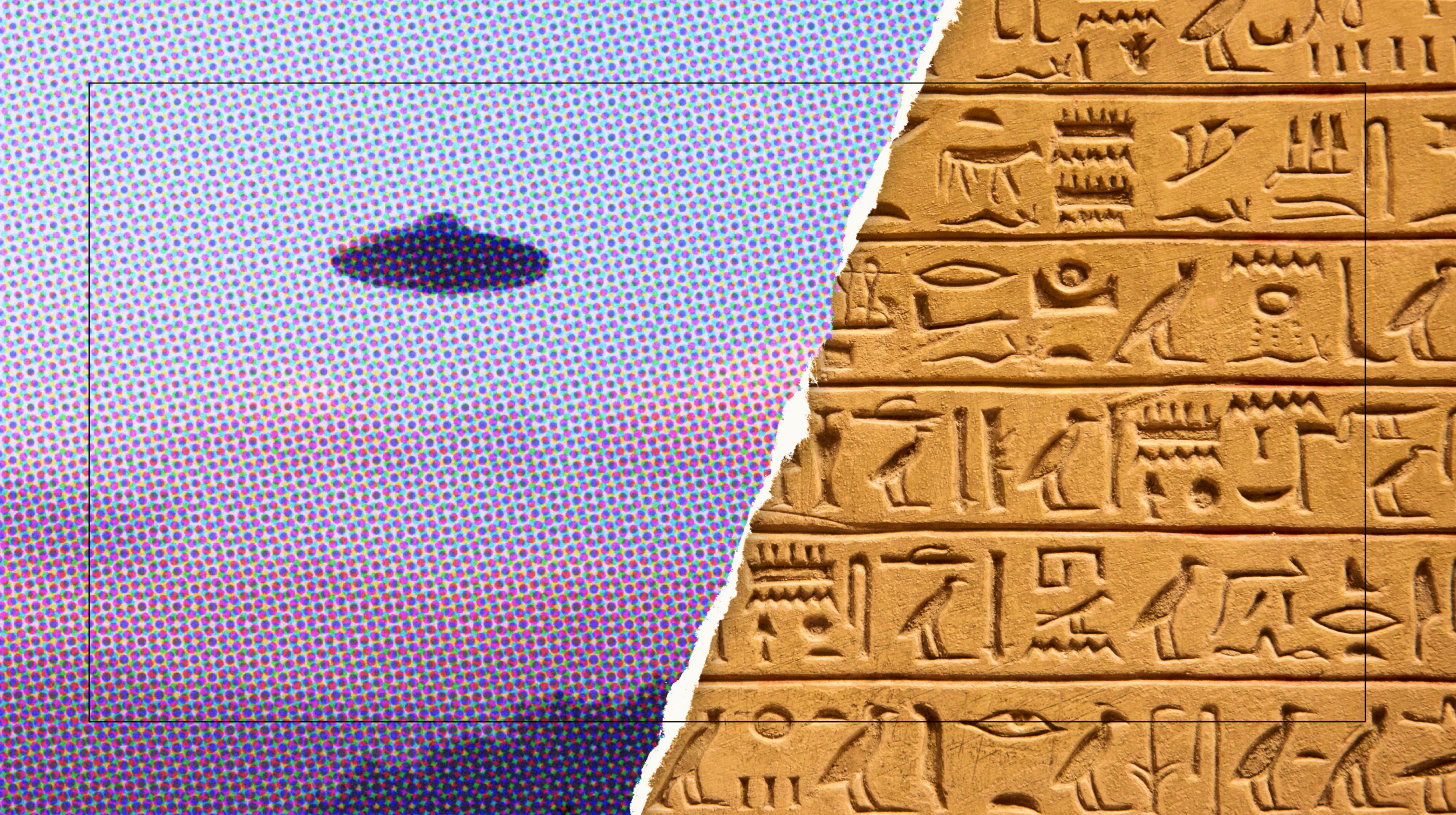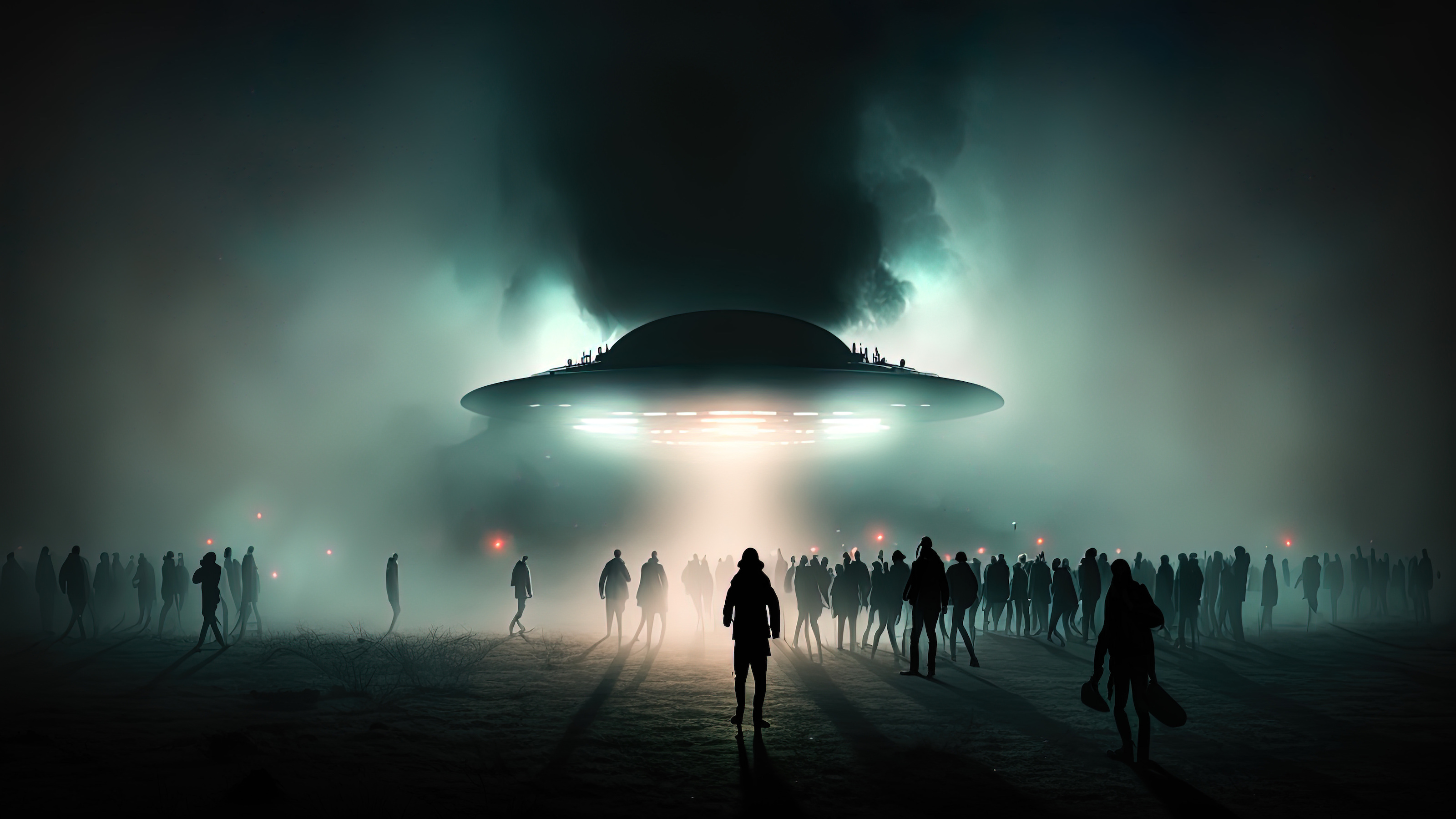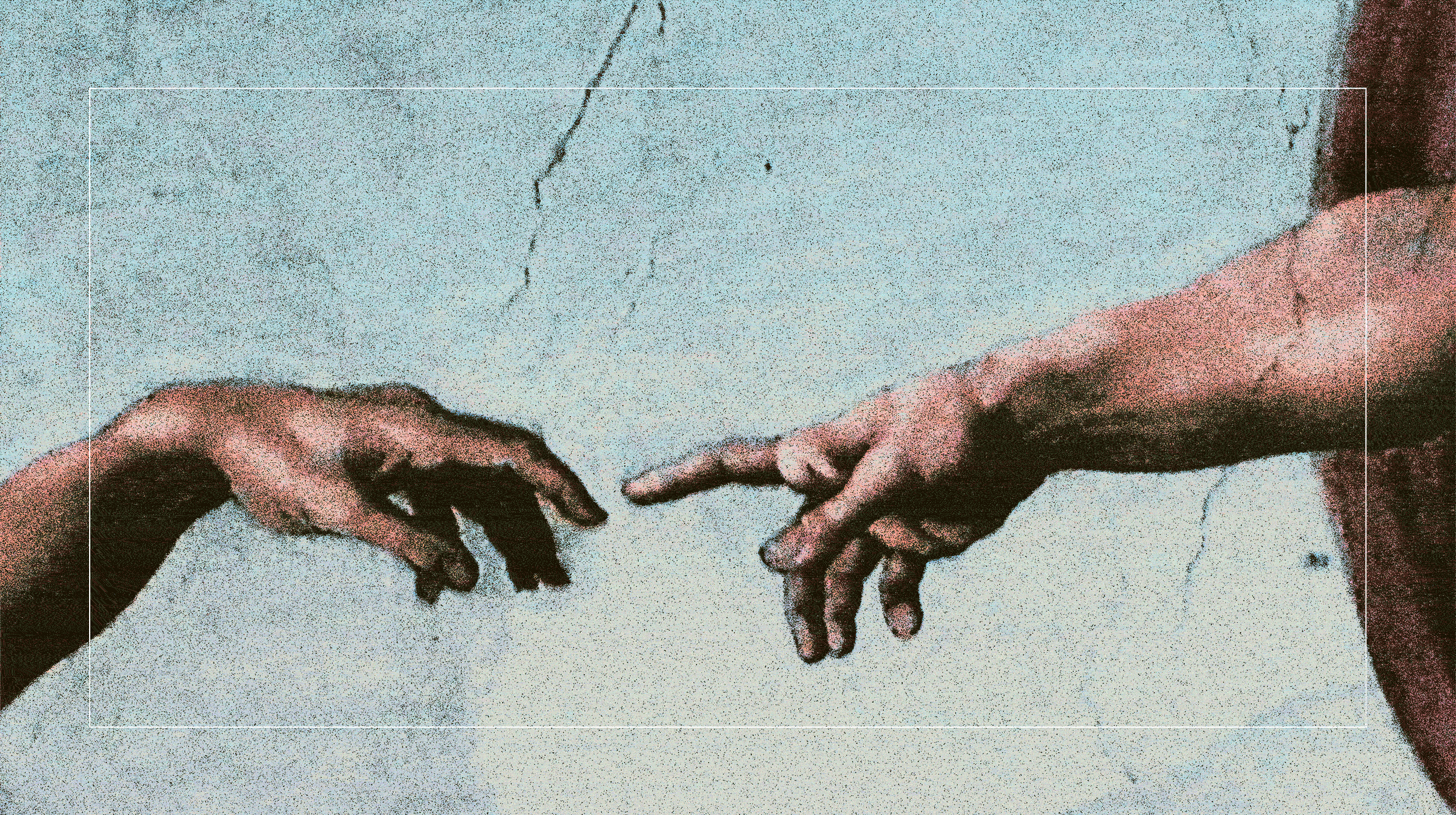Theology professor: “Ancient Aliens” is fantasy fiction for atheists

- Ancient Aliens, a documentary series on the History Channel, interprets historical and religious narratives involving supernatural beings or events as misunderstood encounters with extraterrestrial life and advanced technologies.
- The show is part of a larger cultural phenomenon, supported by a range of science fiction, from Star Trek to the X-Files.
- Despite the stereotype of atheists strictly adhering to philosophical naturalism, recent research indicates that a considerable number of self-identified atheists subscribe to beliefs such as astrology and karma. Ancient Aliens is catering to this varied demographic.
Suppose you were pitching a new docuseries to one of America’s top TV channels. Each week would take a “Greatest Hits” sample from the world’s religious scriptures: the Hebrews’ 40-year desert sojourn, say, or Jesus’ resurrection and ascension into heaven, or Muhammad’s “night journey” from Mecca to Jerusalem and back. The show’s whole premise — which it wouldn’t bother to argue for — would be that all references to gods, angels, or miracles cannot really be what those stories are about, since (obviously) gods, angels, and miracles don’t exist. Instead, a roster of talking-head experts would propose wholly atheistic, naturalistic interpretations of these, and indeed of any and every other, much-loved religious narratives. No other perspectives will be given airtime.
Most people, I suspect, would think that such a show would have a low chance of being green-lighted. Maybe, just maybe, you’d get a one-off commission — perhaps as one of those “astonishing new revelations!” holiday specials that networks like to air at Easter for attention. But a whole series? Nah. After all, who would watch it? The “rise of the nones” notwithstanding, America remains a pretty religious place. There’s just not the market for a primetime atheizing-as-entertainment series. That New Atheism is old news now. And besides, a show like that is surely going to offend a lot of folks. The last thing studio execs want is complaint letters, advertiser boycotts, and lawsuits. “Thanks, but no thanks. Have you thought about podcasting?”
Here’s the funny thing, though. That exact show did get commissioned. Its pilot aired in 2009, and it has been going strong ever since: 19 seasons, 230 episodes, and counting. What’s more, it has spawned a book, a computer game, multiple conventions with tens of thousands of attendees, and a whole lot of memes. Syndicated across the globe, it surely ranks as one of the most successful documentary series of all time. Moreover, its runaway success and pop-culture penetration tells us something interesting about the appetite for atheistic ideas among large swathes of ordinary Americans.
I’m talking, of course, about the History Channel’s second-best show (after Pawn Stars, obviously): the genuinely remarkable phenomenon that is Ancient Aliens.
I’m not saying it’s aliens…
Okay, so I left out the “aliens” part in the first paragraph. But everything else in there is precisely as described. If you haven’t seen the show, a large part of its modus operandi lies in: (1) taking claims about the existence of supernatural beings or forces as found in religious scriptures or mythologies, (2) assuming that they cannot possibly be taken seriously because those types of things don’t exist, and (3) proposing a wholly naturalistic reinterpretation of those stories. But in this case, a “wholly naturalistic reinterpretation” here typically invokes advanced extraterrestrials (though that at least marks a change from the much more boring demythologization that asks if the Red Sea was parted by anomalous wind conditions).
While we might tend to think of aliens as being paranormal beings, they are not supernatural ones in any normal sense of the term. The show is clear that it is highly evolved, “flesh-and-blood extraterrestrials” we’re talking about, albeit wielding advanced technologies. Sure, there are ufologists out there who think that aliens are really supernatural entities, perhaps demons or jinn. But you don’t hear those views among the “mainstream” “ancient astronaut theorists,” as they like to style themselves, featured on Ancient Aliens. Theirs is rather a strict code of philosophical naturalism defined by the Internet Encyclopedia of Philosophy as “all of what there is belongs to the natural world… an accurate, adequate conception of the world does not (according to the naturalist) include reference to supernatural entities or agencies.”
…but it’s aliens
Here’s Giorgio Tsoukalos, co-executive producer and one of Ancient Aliens’ main talking heads, familiar to millions who have never seen the show as “that crazy-haired guy from the memes”:
“Whatever was described in the Old Testament wasn’t ‘God.’ It was a misunderstood flesh-and-blood extraterrestrial whom our ancestors misunderstood as being divine and supernatural. Why? Because of misunderstood technology. And that is the underlying thread that applies to all of the Ancient Astronaut theory.” (“The Evidence,” season 1, episode 1.)
“The Ancient Astronaut Hypothesis proposes that angels were nothing but misinterpreted extraterrestrials.” (“Angels or Aliens,” season 2, episode 2.)
“There’s only two possibilities — either God did it, which we really don’t think happened, or some hi-tech civilization from another planet came.” (“The Evidence,” season 1, episode 1.)
In episode after episode, this basic idea is applied to stories from more-or-less every religious and/or mythological tradition — whatever gods, heroes, angels, or magical creatures they contain, all are interpreted as really referring to ETs with nifty gadgets:
- Greek mythology’s Zeus and his lightning bolt? An alien warlord with a “directed energy beam weapon.” (“God and Aliens,” season 2, episode 2.)
- The dragons of Chinese mythology? A large spacecraft with fire-spewing rocket boosters. (“The Visitors,” season 1, episode 2.)
- Muhammad’s revelations from the angel Jibril? Alien abductions. (“Strange Abductions,” season 5, episode 9)
- The Ark of the Covenant? A nuclear-powered (hence why the Israelites were forbidden from getting too close) machine for growing edible algae (“manna”), helpfully provided by the Israelites’ UFO escort (“the pillar of the cloud”), and which required a day of maintenance once a week (“the Sabbath”) to keep it running efficiently. (“Food of the Gods,” season 14, episode 18.)
Ancient aliens for atheists
Note the dichotomy here. Either “God(s) did X,” or else it must have been aliens. The idea that god(s) might indeed have done it is never seriously entertained. Nor are any alternative hypotheses, more typical of religious skeptics (for example, maybe the Red Sea didn’t really part, maybe these reports were made up or wildly exaggerated, or maybe they were written down centuries after the fact). As such, there is a sense in which Ancient Aliens serves up what one might call “atheism for fundamentalists”: You can keep something fairly close to the literal meaning of the texts, but skip the metaphysics.
In that sense, there’s nothing very new about Ancient Aliens. It is just the latest, slickest incarnation of a much larger, decades-long cultural phenomenon. The Swiss author Erich von Däniken, a mentor of Tsoukalos’ and frequent contributor to the show in his own right, is the best known proponent of these ideas. His Chariots of the Gods?, published in the late 1960s, has sold millions of copies in multiple languages. That book sparked a whole industry of its own, including several dozen sequels by von Däniken himself. Zecharia Sitchin’s millions-selling Earth Chronicles series deserves special mention here too. He argued, “inspired by” Mesopotamian mythology, that Homo sapiens is the product of a mass genetic engineering experiment, crossing Homo erectus with a race of aliens called the Anunnaki. This idea was widely taken up by other writers (including von Däniken), and thus the ever-eclectic Ancient Aliens comes to a unifying metanarrative.
We also should not underestimate the role of science fiction authors and directors in popularizing, however playfully, the basic gist of the Ancient Astronaut Hypothesis. Arthur C. Clarke’s Childhood’s End (1953) and 2001: A Space Odyssey (1968) are good examples here. The second season of the original Star Trek series features an episode in which Kirk happens upon the planet on which Apollo — in fact, an alien jerk — is living out his post-Grecian retirement. More recently, the movies Stargate (1994), The X-Files: Fight the Future (1998), and Indiana Jones and the Kingdom of the Crystal Skull (2008) are all variations on this basic theme.
On one level, this is all pure entertainment — and not so very much more speculative than a lot of what passes for popular documentary-making these days. (I should know. I have to watch a good proportion of what the Discovery and History Channels put out, as I assure my wife, for research purposes.) But entertainment alone hardly explains just how popular the ancient aliens genre seems to be, however one measures it, be it book sales or viewership. Surely the smart money is on a whole lot of people, perhaps millions, actually believing this stuff — which brings us neatly back to the opening paragraph.
Fantasy fiction for atheists
Strictly speaking, one need not be an atheist to entertain the Ancient Astronaut Hypothesis. (Both Tsoukalos and von Däniken claim not to be, notably.) One can believe that all the purported gods of the world’s religions and mythologies are aliens, and still affirm a higher, purer “Something” above them all. In practice, however, Ancient Aliens is a straightforwardly atheist show. Famously, Richard Dawkins wrote in The God Delusion that he is attacking “God, all gods, anything and everything supernatural, wherever and whenever they have been invented.” Change that last clause to “wherever and whenever flesh-and-blood extraterrestrials with advanced tech have been misconstrued by primitive societies,” and you have the Ancient Astronaut Hypothesis in a nutshell.
This is not the kind of popular atheism we are used to thinking of as popular atheism. But then flesh-and-blood atheists don’t always fit the stereotype. Someone who doesn’t believe in a God or gods can happily believe in all manner of other things. Survey research undertaken in 2019 found, for example, that between 10% and 20% of American atheists believe in such things as astrology, reincarnation, a “universal spirit or life force,” or karma. (And those percentages are even higher for atheists in other countries, like China, Denmark, and Brazil.) Not that all these are, to some degree, supernatural phenomena: We might think of them as “spooky atheism.” Overall, perhaps only one-third of American atheists are strict philosophical naturalists. Viewed in this light, “ancient astronaut atheism,” which after all requires no supernatural explanations whatsoever, is arguably at the more hardcore end of popular skepticism.
The big tent of atheism
For a long time now, religious studies scholars have drilled into their students that religions as they are actually practiced might not map perfectly onto the “ideal” or “stereotype” case. Not all Muslims follow the “five pillars” in a textbook way; not all Catholics believe what their catechisms say they should. But the same is true of lived atheism or nonreligion. The kind of respectable, mainstream intellectualism of philosophers like Bertrand Russell and A.C. Grayling, or scientists like Richard Dawkins and Neil deGrasse Tyson, is certainly one variant. But there are plenty of others “out there” (in both senses of the phrase).
American atheism is already a big tent. And if present trends continue, it will be nearer a marquee. It can and does contain multitudes.





